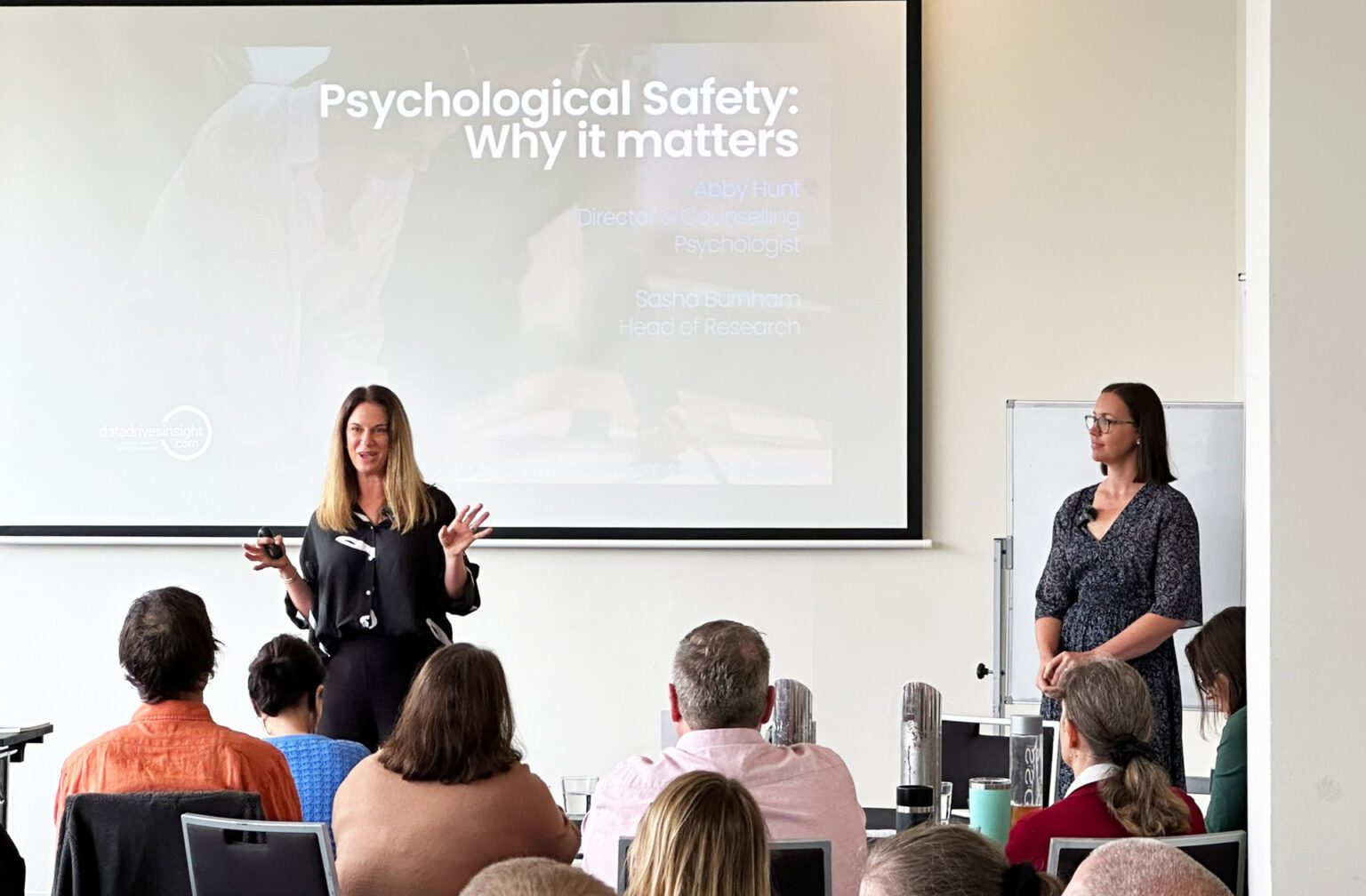This article draws insights from the recent FireUp Conference, where Abby Hunt, Director and Counselling Psychologist, and Sasha Burnham, Head of Research, elucidated the concept of psychological safety and its profound impact on workplace culture.
What is Psychological Safety?
Psychological safety, a term popularised by Harvard professor Amy Edmondson, refers to an environment where individuals feel confident that they can speak up, share ideas, and express concerns without fear of punishment or humiliation. This concept is crucial as it encourages employees to contribute their unique perspectives, fostering an innovative and collaborative workplace culture. In such an environment, the ripple effects extend beyond individual empowerment to enhance team performance and organisational success.
The Importance of Psychological Safety
There are a myriad of benefits associated with high psychological safety within teams:
- Increased Engagement and Productivity: Teams with high psychological safety experience a deeply engaged, productive, and passionate workforce. Employees are more likely to take initiative and collaborate effectively.
- Better Decision-Making and Solutions: High psychological safety facilitates effective decision-making and higher-quality solutions due to the free exchange of ideas and diverse perspectives.
- Enhanced Innovation and Creativity: When team members feel safe to express themselves, innovation and creativity thrive, driving excellence within the organisation.
- Talent Attraction and Retention: Organisations that prioritise psychological safety attract and retain better talent, as employees seek workplaces where they feel valued and heard.
Psychological Safety vs. Psychosocial Risk
Psychological safety and psychosocial risk are two sides of the same coin when it comes to workplace wellbeing, but they address different aspects.
- Psychological Safety: This term refers to creating a secure and open environment where employees feel comfortable taking interpersonal risks. It means they can speak up, share ideas, and express concerns without fear of negative consequences. High psychological safety empowers employees to contribute their best, fostering innovation and collaboration.
- Psychosocial Risk: This refers to factors in the workplace that can harm an employee’s psychological health, such as excessive workload, lack of support, and negative organisational culture. These risks pose a threat to employee wellbeing and can significantly impact basic productivity.
Psychological safety is not just a buzzword; it is a critical component of a thriving, innovative, and inclusive workplace. Organisations that invest in fostering psychological safety and addressing psychosocial risks stand to gain not only in terms of employee wellbeing but also in overall performance and success. As Abby emphasised, “Psychological safety is everyone’s responsibility, but it hinges on leadership valuing and facilitating it.”
By understanding and implementing the principles of psychological safety, organisations can unlock their full potential, creating environments where diversity and innovation are not just encouraged but are integral to their success.

Data Drives Insight’s PSI Program
Data Drives Insight offers the Psychological Safety and Inclusivity Indicator (PSI) and PSI 360 tools, designed to assess and enhance psychological safety and inclusivity within organisations. These tools provide invaluable insights into a team’s psychological profile, guiding leaders in creating environments where all employees feel secure and valued.
It was such a pleasure to be involved in the 2024 Fire Up Future of Coaching Conference. Visit the Fire Up Coaching website here. To learn more about how you can incorporate Data Drives Insight’s PSI solutions into your organisation, contact us here.


